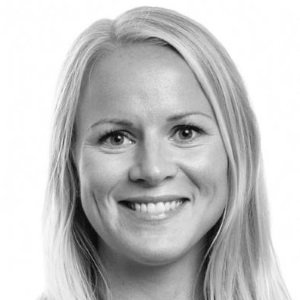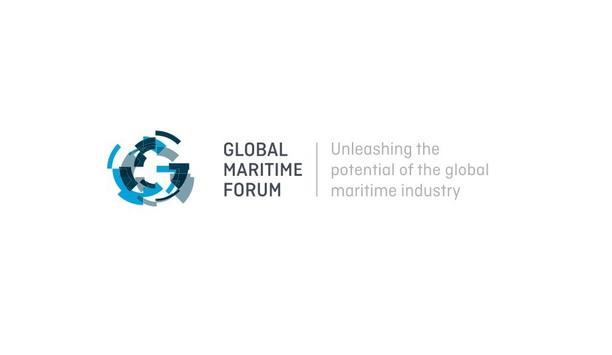Gard AS - Experts & Thought Leaders
Latest Gard AS news & announcements
The 175 member states of the International Maritime Organization (IMO) have unanimously agreed on an ambition to reach net-zero GHG (greenhouse gas) emissions from international shipping close to 2050. The previous strategy aimed for a 50% reduction in emissions by 2050. However, the new one is far more ambitious. The IMO is now targeting at least a 20% reduction by 2030 and 70% by 2040, compared to 2008 emission levels. The new strategy also includes striving for even higher reductions than this by 2030 and 2040. Carbon pricing The new IMO strategy also introduces emission pricing mechanisms with different approaches Shipping of cargo and passengers within, into and from the EU/EEA will be subject to carbon pricing through the EU emission trading system (ETS) from 1 January 2024. It is expected to cost the industry some EUR 8-10 billion per year once fully implemented in 2026. The new IMO strategy also introduces emission pricing mechanisms with different approaches to be assessed. A fragmented fuel landscape Clarksons estimate that 44% of the global order book was alternative fuelled in the first half of 2023. Front runners have been using alternative fuels for years and have gained experience and built supply chains. In the more fragmented fuel landscape, availability could be a risk and it is vital that the global bunkering infrastructure keeps pace with the developments in the industry. Green shipping corridors and the ambitions in the Clydesbank Declaration will be imperative in the transition. Implications for risks There will be an alteration of risk. If a vessel grounds, the environmental implications of a possible bunker oil spill pose considerable concerns. Alternative fuels are generally less harmful to the immediate environment but present us with potential safety consequences. New technology could also alter the risk picture for machinery failures Ammonia is highly toxic; hydrogen is explosive, and batteries can catch fire. New technology could also alter the risk picture for machinery failures, and the correct operations and handling of new fuels will be vital. At the same time, it is worth bearing in mind that the transition from sail to coal to heavy fuel oil also caused considerable skepticism and concerns. Gard is responding For Gard it is imperative to support their members and clients through the green transition and to ensure that the safety of seafarers is maintained. Experts across the company have been addressing risks associated with the new technologies and handling of alternative fuels, and Gard has established working groups focusing on the fuel transition and follows closely the developments. Additionally, Gard maps climate-related risks and opportunities, and is adjusting the strategy accordingly. To track decarbonisation developments, Gard co-founded the Poseidon Principles for Marine Insurance and monitors emissions from parts of their insurance portfolio.
In the report, eight of the world’s pioneering marine insurers have gathered and published client data to track their hull and machinery insurance portfolio’s climate impact. The goal is to support the industry’s green transition. “This level of transparency is a major milestone on our journey to decarbonise the maritime industry,” says Patrizia Kern, Chair of the Poseidon Principles for Marine Insurance initiative and Marine Strategy Advisor – CEO Office at Swiss Re Corporate Solutions. Signatories’ portfolios On average, the Signatories’ portfolios are 12.7% above being aligned with reaching the UN maritime goal of at least 50% reductions of the annual greenhouse gas emissions from international shipping by 2050, compared with their level in 2008. Average score of the 100% CO2 emission reduction track is 20.8% above alignment The second trajectory the Signatories track takes is more ambitious and has a goal of zero CO2 emissions in the middle of this century. The simple average score of the 100% CO2 emission reduction track is 20.8% above alignment. “It is evident that there is work to do, but hard data and transparency is a necessary first step,” Kern says. Many takeaways In the report, member companies describe individual takeaways and how this new information will influence decision-making. “We know there is room for improvement, both in our climate alignment score and in the data collection process itself, but that is why we wanted to be part of the Poseidon Principles for Marine Insurance. This is a journey we are on to learn and improve, and together with our clients, I am confident we will make the necessary progress,” says Rolf Thore Roppestad, Vice Chair of the initiative and CEO at Gard which insures about 50% of the global merchant fleet. Signatories’ entire hull and machinery portfolios The numbers do not cover the Signatories’ entire hull and machinery portfolios Gathering data on the portfolios is a complex task. First of all, readers should take note that the data covers 2021 – not 2022. Further, the numbers do not cover the Signatories’ entire hull and machinery portfolios, as not all clients reported their data back to the insurance providers. In addition, it is industry practice that each ship is insured by a primary insurer and several secondary insurers, because of the extraordinary value of modern ships, which adds another level of complexity to the data collection. 2023 ambition The Poseidon Principles were established in 2019 by the Global Maritime Forum and a number of financial institutions to create a global framework to quantitatively assess and disclose whether financial institutions’ lending portfolios are in line with climate goals. In addition to the annual report on Marine Insurance, the Poseidon Principles for Financial Institutions published their third annual disclosure report with 28 of them reporting in December 2022. For 2023, the ambition of the Poseidon Principles for Marine Insurance is to get more members to join the principles, increase the contribution volume from the insurance clients and improve access to data. Industry foundation is shifting The insurance companies are only one component in a complex ecosystem" The very foundation of the maritime insurance sector is changing, according to the Signatories, because the maritime industry has begun its transition away from the monolithic oil-based combustion technology towards a future with a wide array of propulsion technologies and energy sources. Therefore, each company within the marine insurance sector must understand what they will insure in the future and how new ship technology will work. “The insurance companies are only one component in a complex ecosystem, but while engaging with our clients we can become levers of change,” Kern says. Greenhouse gas emissions Climate change is a ‘here and now challenge’ for the insurance industry, and the marine insurers see their engagement with their clients as a way of contributing to the wider sector, given that international shipping emits 2% to 3% of global greenhouse gas emissions, transporting close to 80% of global trade by volume. Reporting Signatories Fidelis MGU, Gard, Hellenic Hull Management, Navium, Norwegian Hull Club, SCOR, Swiss Re Corporate Solutions and Victor Insurance. Affiliate members Cambiaso Risso Group, Cefor, Cosco Shipping Captive, CTX Special Risks, EF Marine, Gallagher, Lochain Patrick Insurance Brokers, Lockton Marine, WTW.
Gard is happy to announce that they have entered into partnerships with the Global Centre for Maritime Decarbonisation (GCMD) in Singapore and Mærsk Mc-Kinney Møller Center for Zero Carbon Shipping in Denmark. As decarbonisation transforms the maritime industries, ship owners will increasingly have to convert their operations to alternative fuels and low-carbon technologies, exposing them to new risks and operational challenges. As a leading marine insurer, Gard wants to support the industry in this transition. That is why Gard has entered into partnership agreements with two global decarbonisation centres: The Global Centre for Maritime Decarbonisation (GCMD) GCMD aims to help the industry eliminate GHG emissions, by shaping standards for future fuels The Global Centre for Maritime Decarbonisation (GCMD) is a non-profit organisation set up in Singapore on 1 August 2021, by the Maritime and Port Authority of Singapore (MPA), BHP, BW Group, Eastern Pacific Shipping, Foundation Det Norske Veritas, Ocean Network Express and Sembcorp Marine. GCMD aims to help the industry eliminate GHG (greenhouse gas) emissions, by shaping standards for future fuels, financing first-of-a-kind projects, piloting low-carbon solutions - end-to-end - under real-world operating conditions, and collaborating across sectors. The Mærsk Mc-Kinney Møller Center for Zero Carbon Shipping Based in Copenhagen, Denmark, the Mærsk Mc-Kinney Møller Center for Zero Carbon Shipping is a not-for-profit, independent research and development (R&D) centre, working across the energy and shipping sectors with the industry, academia, and authorities. With partners, the Mærsk Mc-Kinney Møller Center for Zero Carbon Shipping explores viable decarbonisation pathways, facilitates the development and implementation of new energy technologies, builds confidence in new concepts and their supply chains, and accelerates the transition, by defining and maturing viable strategic pathways to the required systemic change. Collaboration with global partners The Mærsk Mc-Kinney Møller Center for Zero Carbon Shipping is based in Copenhagen, but works with partners globally. It was founded in 2020 and is supported by a total donation of DKK 720 million from the A.P. Moller Foundation. Strategic partners include American Bureau of Shipping, Alfa Laval, A.P. Moller - Maersk, bp, CF Industries. Cargill, DP World, Equinor, Hapag-Lloyd, John Swire & Sons, MAN Energy Solutions, Mitsubishi Heavy Industries, Mitsui, DS NORDEN, NYK Line, Rio Tinto, Royal Caribbean Group, Seaspan Corporation, Siemens Energy, Stolt Tankers, Sumitomo Corporation, Topsoe, TotalEnergies, and V.Group.









